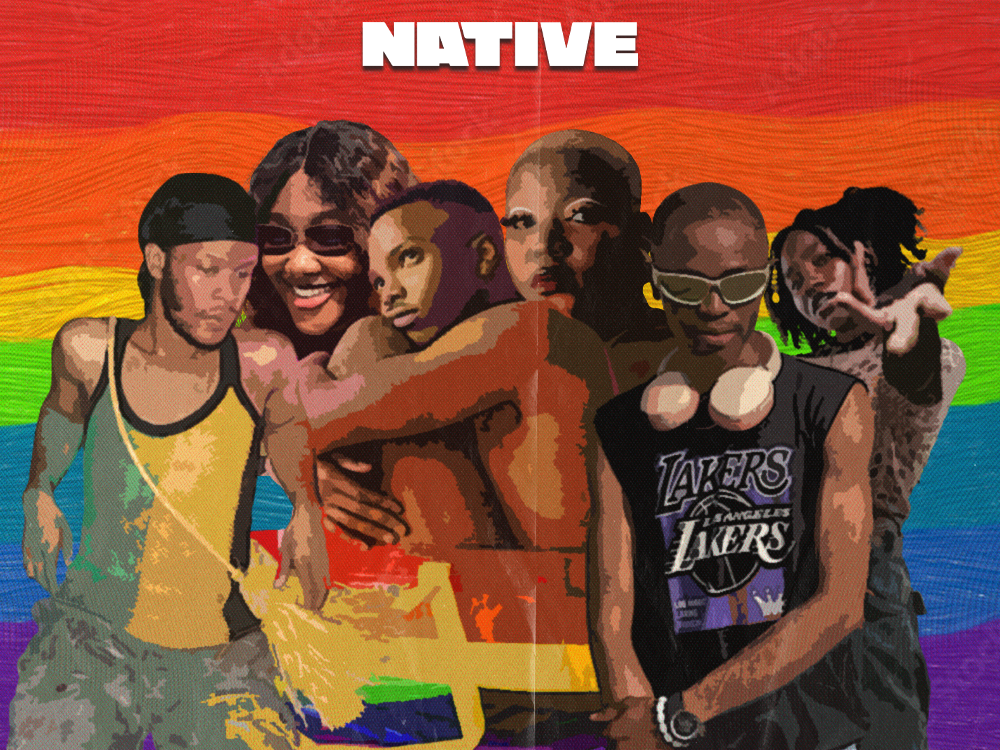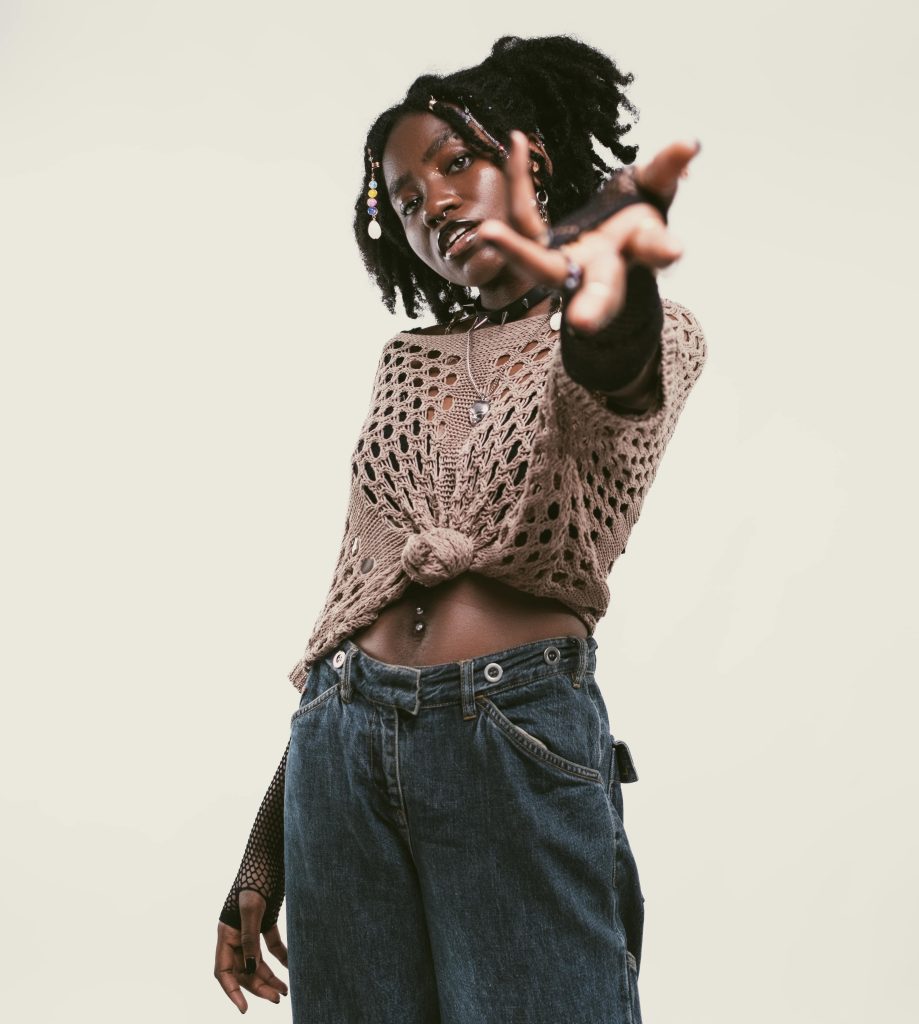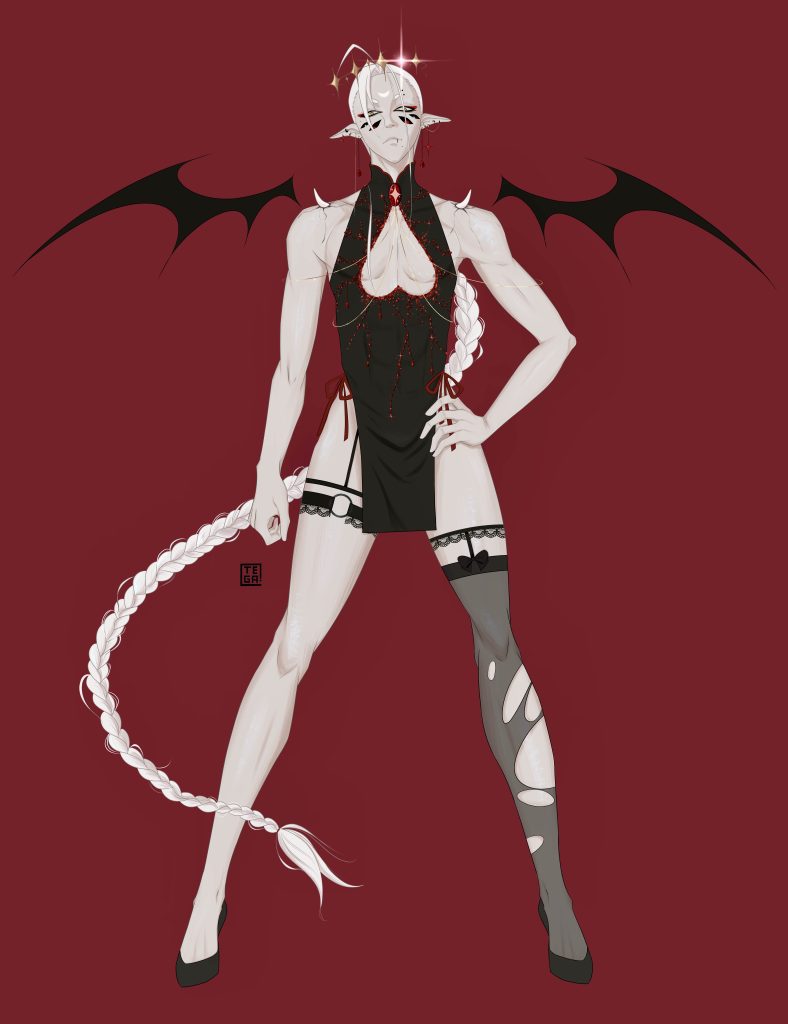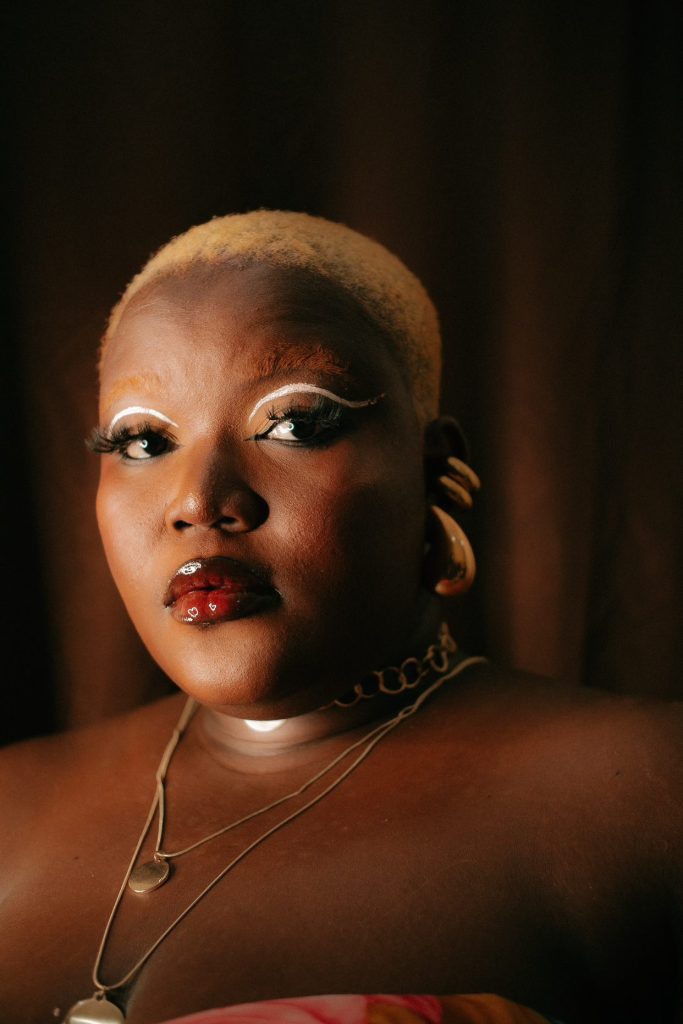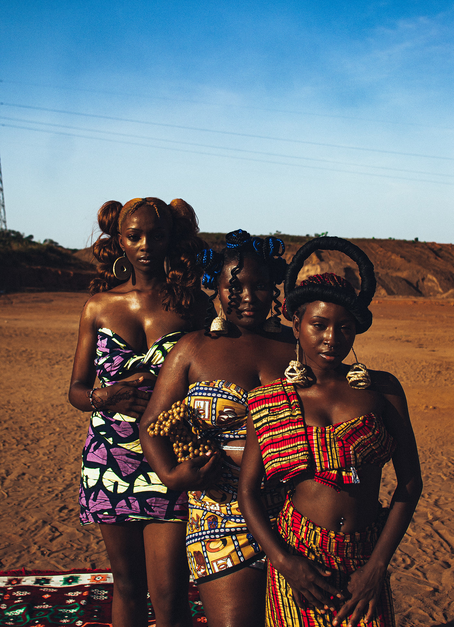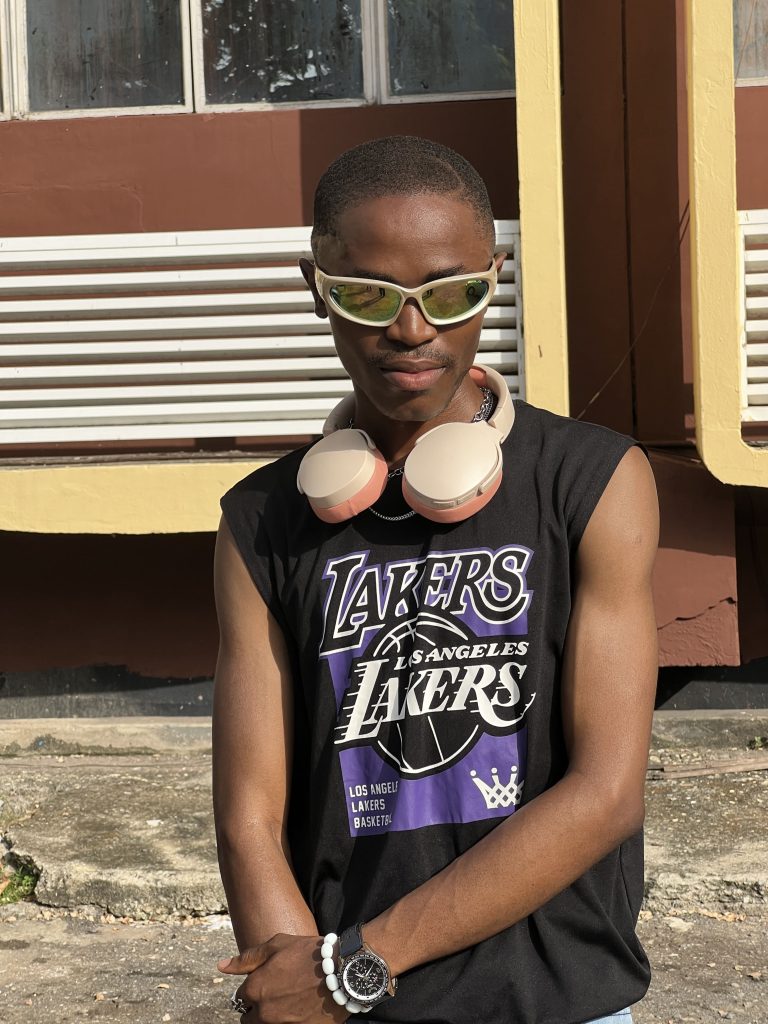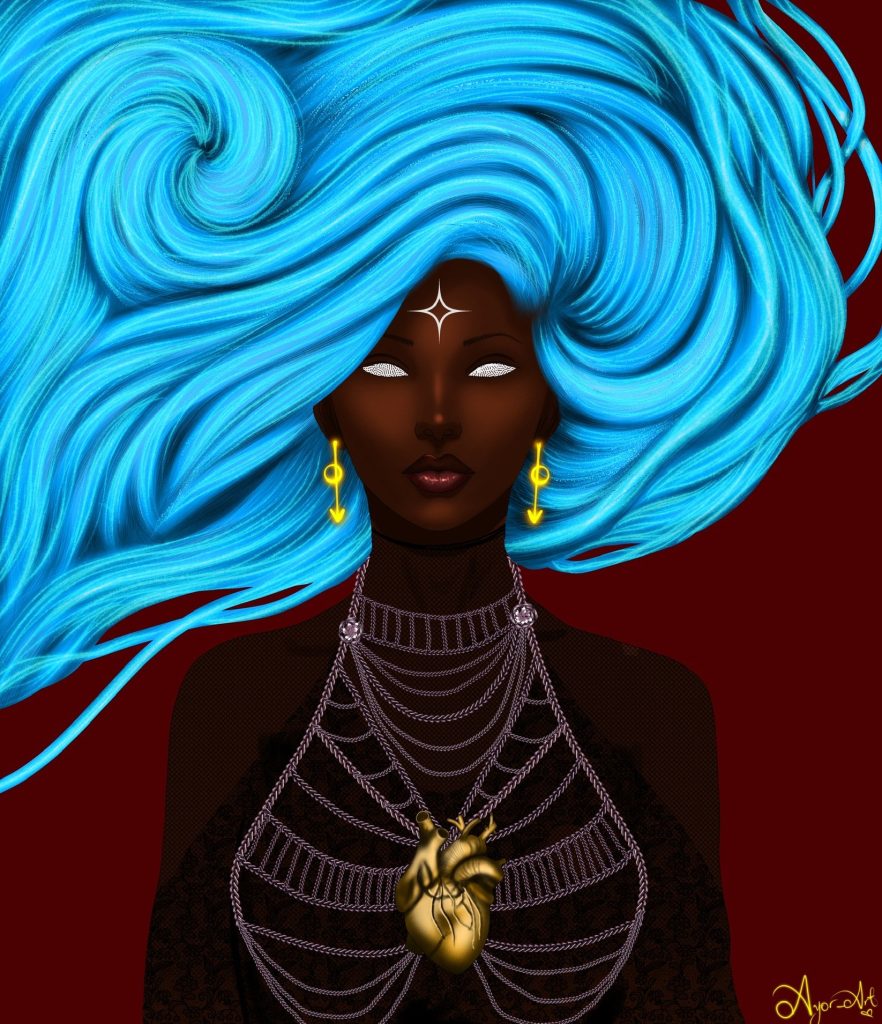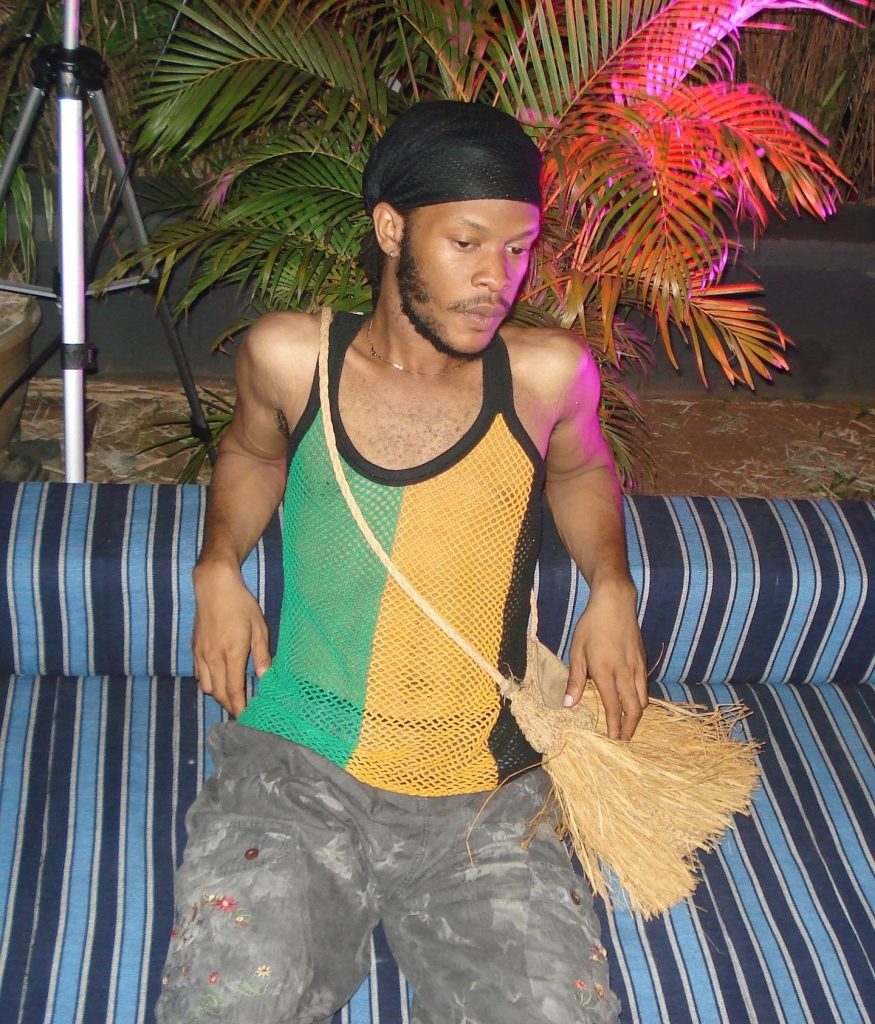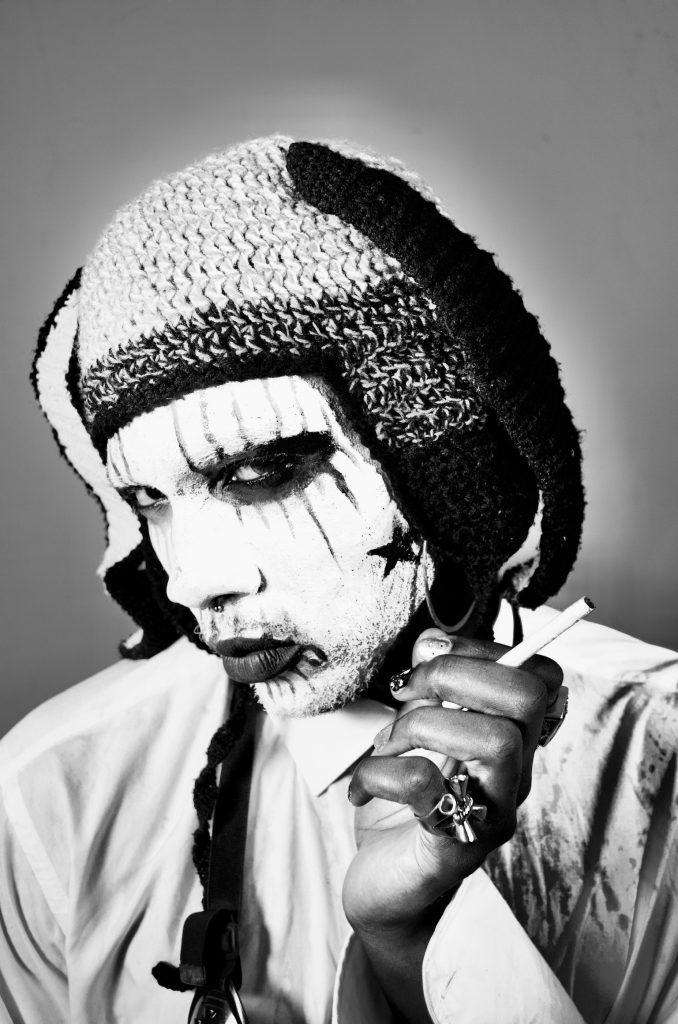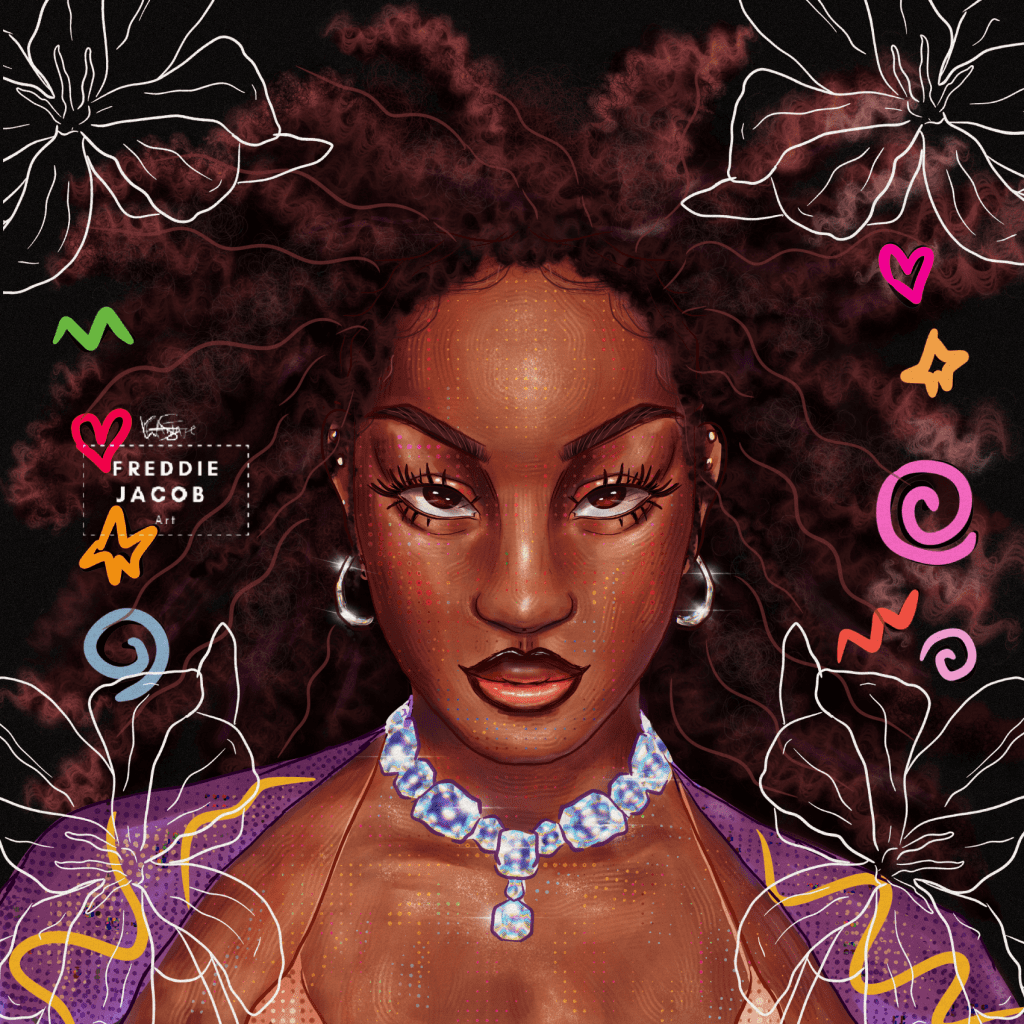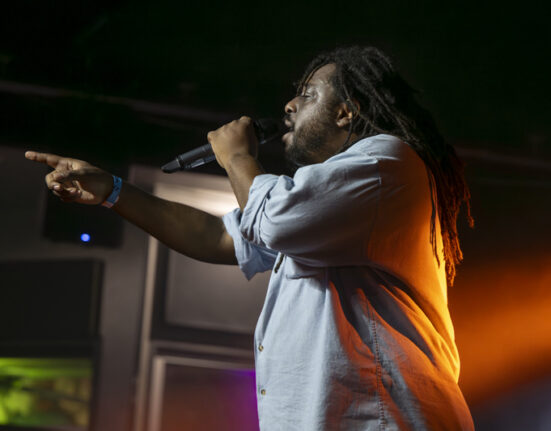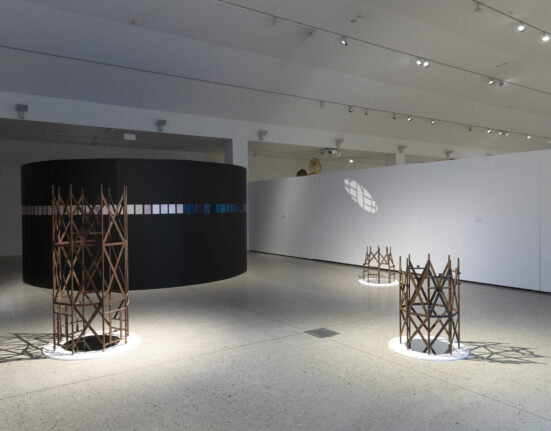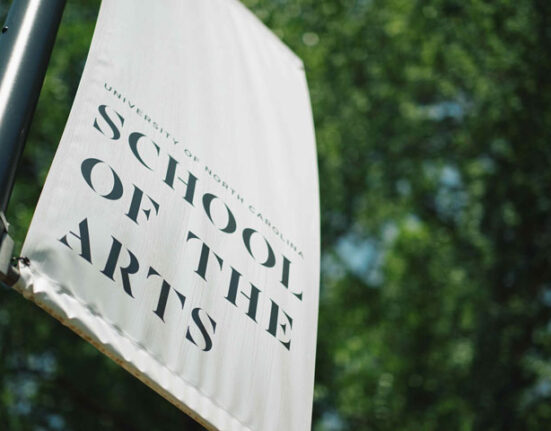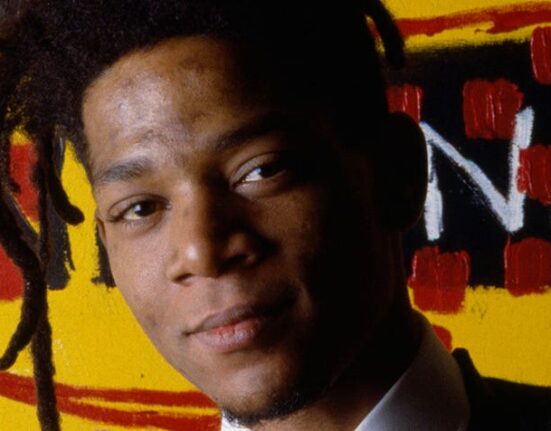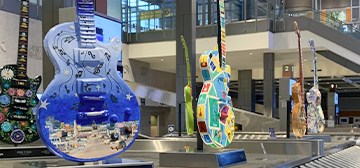Their artistry not only reflects personal truths but also serves as a catalyst for social change and innovation.
Queer art takes many shapes and forms and in the world of contemporary art, these Nigerian creatives are challenging convention and reshaping narratives with their unique perspectives. We asked them about how their artistry not only reflects personal truths but also serves as a catalyst for social change and innovation.
These responses have been edited for length and clarity.
How long have you been an artist, and how would you describe your work?
Tega Akpomedaye (Digital artist, she/her)
I’ve been an artist for as long as I can remember, I don’t think there was a “when” for me. Although, I started digital art in 2019. Not exactly sure how to describe my art, to be honest. It’s been called whimsical, dark, and more, but I don’t pinpoint it to a specific style. I create whatever comes to mind, whether it’s a hot, sexy fem-boy (my favourite subjects), a stunning woman, or simply my dark emotions.
|
|
|
Alexandra Obochi (Photographer, she/her)
I’ve been creating from two different outlets since about 2016, I would say. My work started from being a makeup artist to kind of moving into creative direction through collaborations and then eventually falling into content creation and then photography. So I kind of have just been moving around and exploring which suits me better. I would describe my work as non conforming a huge part of my work is just telling stories that, you know, have not been told or trying to at least involve marginalised communities like nigerian queer community, and also making sure that my culture is a big part of the work that I do
How has your identity influenced your artistic vision and style?
Ayomikun Bamishaye (Digital artist, he/him)
I would say my identity as a queer person is intricately woven into my art. Growing up in a stigmatised society, Art made me able to explore a feminine side that I couldn’t necessarily explore in real life. An aspect of my art which is heavily inspired by my identity is the makeup looks I add to my artworks. I’ve been an ardent lover of makeup growing up, and of course, growing up in a Nigerian home, there was no opportunity for me to explore that. I then realised that I could use my art to explore that side of me that I had kept hidden for years and it made me experience the life I’ve always wanted through my art.
Freddie Jacob (Digital artist, she/her)
Most of my creative wandering comes from my identity and experiences as a human being in society through the lens of wanting to tell a story but my work is not limited to or by it.
Folarin Omolayole (Photographer, he/him)
I aim to create art that evokes a sense of connection and introspection in my audience, challenging them to consider their own identities and experiences. My work is deeply personal, often reflecting the intersections of joy and struggle that come with living authentically
What’s been your most memorable moment so far as an artist?
Folarin Omolayole (Photographer, he/him)
A really memorable moment for me was releasing my first photo essay “Beacon of light.” The essay took an introspective dive into my early childhood experiences, and was my first body of work that really connected me to my audience and gave me a taste of the type and themes of work I would love to keep making in the future.
Alexandra Obochi (Photographer, she/her)
So I said my work was featured in Time Square in 2022 for NFT NYC. I was really into NFT’s then. Last year I had an exhibition in Kampnagel Hamburg the A WA NI BI exhibition by Matthew Blaise for Obodo which is a Nigerian Queer NGO. I was the recipient of the Black women photographers grant in 2023 which I used to create my latest work, “Project celebrating queer” which is a project I started in 2021 aimed at celebrating and documenting queer nigerian people. I was in the PhMuseum black female photographers to watch in 2024 list as well. Yeah I think those have been some highlights of my journey so far.
|
|
|
Do you ever include your personal experiences in your work? Can you talk about an example?
Tega Akpomedaye (Digital artist, she/her)
That’s exactly what my art is about, my experiences. Last year, I created an animation after my girlfriend and I broke up. It was the best way for me to express the emotions I felt at the time. I based the animation on the song ‘Strange’ by Celeste.
Alexandra Obochi (Photographer, she/her)
I wouldn’t say my personal experiences. I don’t think my life is that interesting, really. I think I am more inspired by things that happen around me. For example cultural attires, you know people, the events that have happened are the kind of things that inspire me and have like a big impact in my work. Even with photographing people it’s the same thing. So I’m always interested in the people and their stories
Ayomikun Bamishaye (Digital Artist, he/him)
I’m not one to usually express my emotions or experiences through my art consciously. However, there are instances where my personal experience has been portrayed in my work. In 2023, I suffered from severe anxiety and panic attacks. It was a terrible experience and was usually characterized by my heart literally beating out of my chest. That year, I made an art piece (animated) that I titled ‘Raindrops’. It featured a female character with flowing blue hair, and her golden heart beating outside her chest. The piece was quite straightforward to whoever thought to reflect on it as the title itself reflected the erratic beating of my heart at the time.
|
|
|
Have you encountered any issues from your audiences or clients because of how you identify?
Tega Akpomedaye (Digital artist, she/her)
A client refused to work with me after finding out I was queer through my art portfolio. I’m careful about what I share on Instagram because of my family, but on Twitter, I’m free to express myself and connect with the queer community through my art
Folarin Omolayole (Photographer, he/him)
Honestly not that I know of. I try to block out the noise and focus on being authentic and making work that is true to me. I don’t stew in negativity, most times once I feel hostility about the way my work is being digested, I take it elsewhere.
Alexandra Obochi (Photographer)
So far, not really. I think one of the reasons why that happens is that I present as “normal” or what a straight person would look like. So I don’t really come across that much negativity when it comes to my work, because I feel like my community is filled with people who are like me, so they kind of also already understand what I am doing.
What themes or messages do you look to convey through your art, particularly concerning LGBTQ+ experiences and narratives?
Folarin Omolayole (Photographer, he/him)
I would say for me visibility and representation is one of the most important messages I could convey through my work. Oftentimes I find that LGBTQ+ individuals are subject to erasure, so I think its important for me to make work that validates queer existence and experiences so that future generations have imagery and stories to reference from the archives. I want all of us to be able to find solace in our shared experiences.
Brian Ibeh (Photographer/Filmmaker)
Maybe it’s not something that happens so consciously. Like maybe I’m aware of it happening, but I think just growing up queer I always looked at life beyond the traditional perspective. It has always given me a wider perspective because when you look at it I guess one of the premises of being queer is just like deconstructing constructs about sexuality and gender that exist in the everyday world. So in the same way I guess that experience has also just informed even just my eye for aesthetics like the things I consider beautiful are definitely influenced by just having a widened perspective that think queer people are just naturally oriented with just based on what it means to actually navigate the experience.
|
|
|
Ayomikun Bamishaye (Digital artist, he/him)
I hope to inspire feelings of self-love, empowerment, and a sense of belonging in those who view my work. My art is also an exploration of peace. That is the peace that comes with living authentically as one’s true self, the peace found in safe spaces, and the inner peace that develops when we embrace our true selves.
We know that Nigeria is extremely anti-LGBTQ. Have you encountered any resistance or backlash due to the queer themes or content in your artwork? How do you navigate such challenges?
Freddie Jacob (Digital artist, she/her)
My work isn’t queer-centric and that is probably why I have had the privilege and protection from hateful backlash. I fear I would not have this protection if it was, and I believe queer centric Nigerian art and artists do not get to access this protection and that is deeply tragic.
Tega Akpomedaye (Digital artist, she/her)
Not exactly, I think this is due to the fetishisation of queer women by cis men. I’ve received a few negative comments on two of my posts that explicitly featured queer women kissing, but I’ve learned to ignore them and move on. I’m confident that my art has already resonated with my target audience, and that’s what matters most to me.
Ayomikun Bamishaye (Digital Artist, he/him)
Not really actually, there have been occasions when people have looked at me strangely and asked why I only draw female characters, but it hasn’t exactly moved past that. And of course, there have been a couple of times that my art has gotten to the wrong side of Nigerian Twitter. I’ve learned over the years to sort of just mute it all and not dwell on it. I think overcoming such challenges really boils down to having like-minded individuals around you for support as well. It really helps.
Are there specific artists or movements within the LGBTQ+ community that have inspired or influenced your work?
Folarin Omolayole (Photographer, he/him)
My two favourite photographers are Rotimi Fani Kayode who was an Older Queer Nigerian photographer from the 80’s and Clifford Prince king who is a queer American photographer that I love his storytelling. I love both of their abilities to tell queer stories in a soft plush way and their lack of fear when turning the lens on themselves with self portraiture.
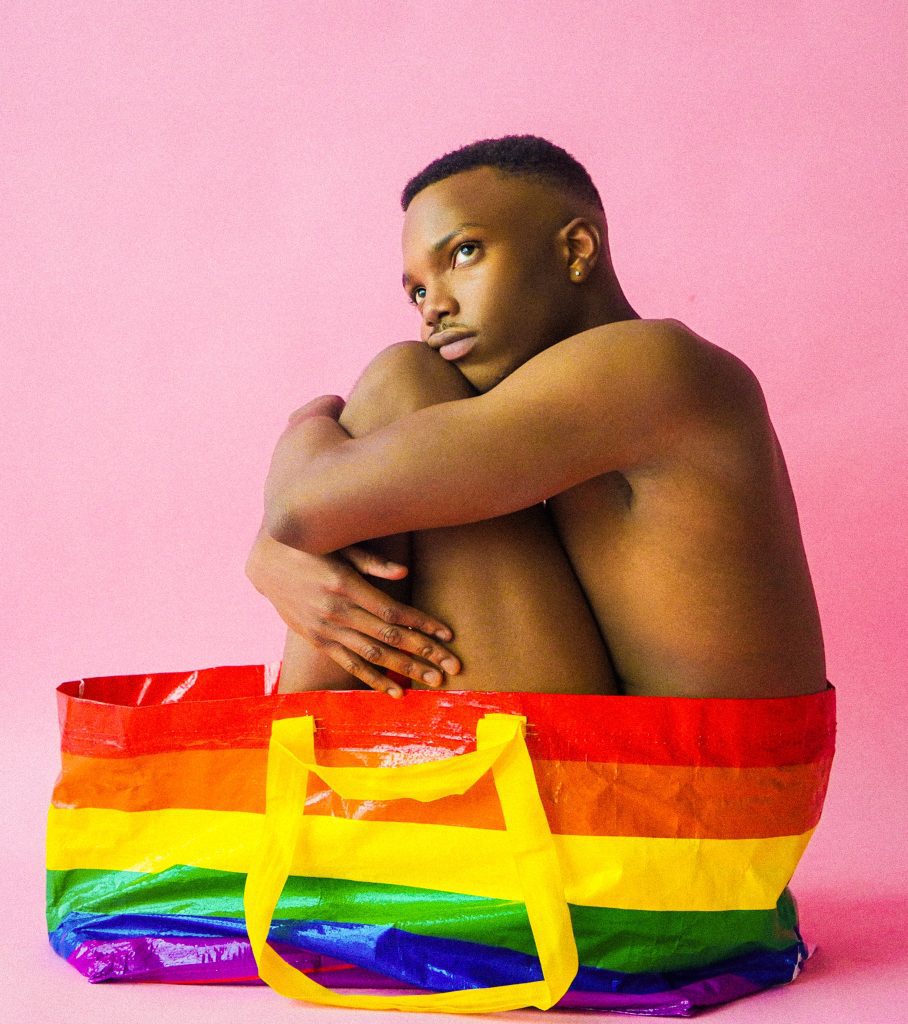

Freddie Jacob (Digital artist, she/her)
It is a very long list but I will like to highlight Frank Ocean because his music has inspired me as a human for a long time and also influenced my creative journey as an artist with a multi-faceted identity. I’m grateful he and his art exists.
Ayomikun Bamishaye (Digital artist, he/him)
Oh yes definitely, I’ve met so many artists who have inspired and influenced my work in so many ways. The first person on my list would definitely be Tega. She’s one of the artists whose art really spoke to me and inspired me, to be honest. I love how open and provocative she is with her art, she’s such an inspiration to me. Also, people like Freddie and Hazel as I have mentioned previously have really inspired me in the space. As for communities, I used to be part of a Twitter community hosted by Mxtter and Cyber Yuyu with Glitch of Mind. They hosted Twitter spaces weekly for us queer artists to connect and chat freely. It was really fun and made me feel welcome and seen in the community.
How do you think queer art contributes to broader conversations about gender, sexuality, and identity?
Freddie Jacob (Digital artist, she/her)
I think queer art contributes to these conversations in nuanced and angled ways. Art can be used as a tool of amplifying voices and ideas. Queer art and queer artists are very important in the world.
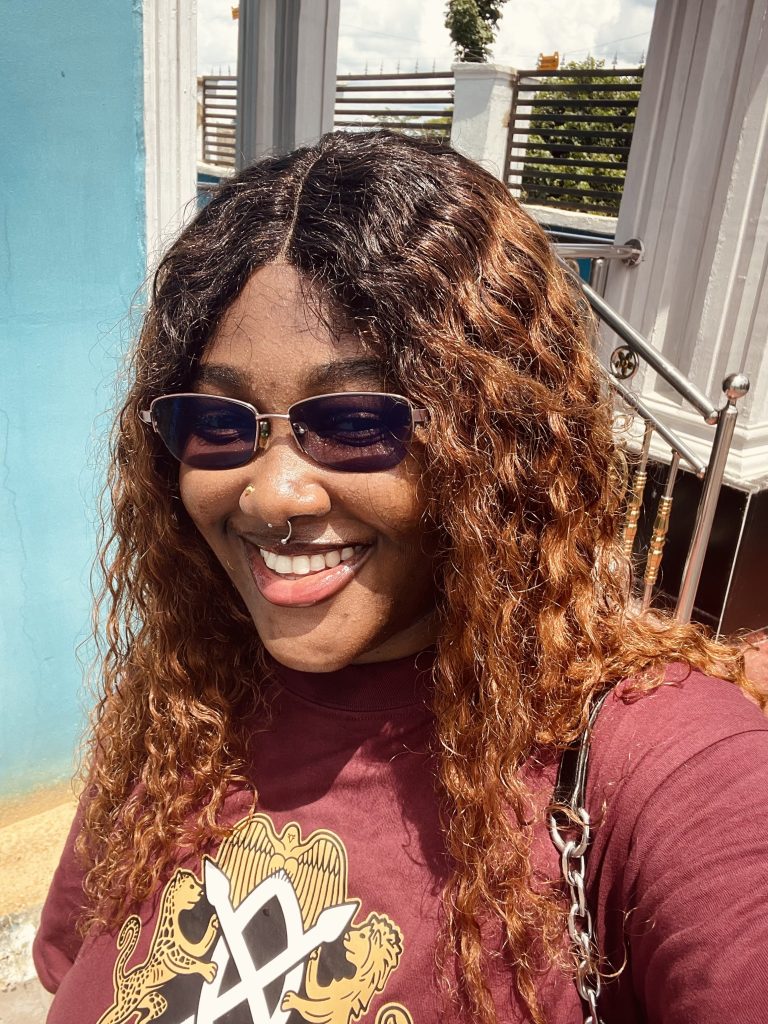  |
|
Brian Ibeh (Photographer/Filmmaker)
While I don’t think art is only activism, it takes on this quality of activism because it’s pulling from real people’s experiences. So I think queer art does this, by just providing more diverse perspectives because queerness is extremely diverse and gender identity is extremely diverse, and because sexuality is extremely diverse but this only means so much, as a statement
Tega Akpomedaye (Digital artist, she/her)
Through my art, I was able to meet other amazing queer artists (like Ayo, Freddie, Gigi) and other amazing artists who liked my work. It created a sense of community for me, I found my people and it only happened because I shared my art.
What advice would you give to other queer artists who are trying to navigate through their own artistic journey or seeking to amplify queer voices through their work?
Ayomikun Bamishaye (Digital artist, he/him)
The best advice I could give would be to be more open to meeting new people and making new friends. Conversations with artists like yourself who understand you truly is a blessing and the best thing to navigate through this journey. Don’t be scared to meet people, join communities, and talk about your art.
Alexandra Obochi (Photographer, she/her)
I would say if you want to do it fully come into it. A lot of people speak about it and then if they get any backlash, they immediately fall back which is quite understandable but these are the consequences of what you’re doing, and you should know that in the first place before actually going into it. That’s if this person is a queer person trying to speak about queer rights and for artists in general I’d just say, be passionate about what you’re doing, before going into it because it’s pretty hard.



